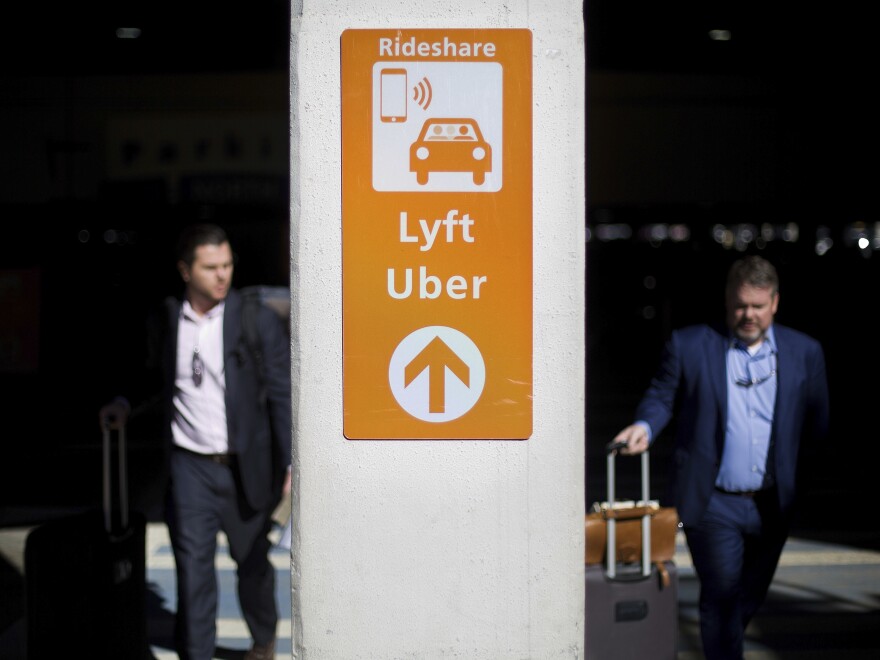Joe Renice noticed things were different last week in downtown San Francisco.
"I was driving around the financial district for 3 1/2 hours. I got one ride," he said.
Renice is an Uber driver and normally spends a good chunk of his day ferrying tech workers and tourists around the city.
But with companies including Twitter, Salesforce and Facebook advising employees to work from home and conferences and other events being canceled every day, demand for rides in many big cities has dropped.
The spread of coronavirus is the U.S. is highlighting just how precarious the gig economy can be. The payroll tax cuts and sick leave policies being discussed by the Trump administration would not apply to gig workers, because they are not considered employees of companies like Uber and Lyft. If they don't drive or deliver food, they don't get paid.
That is creating a lot of uncertainty for gig workers, who are grappling with whether to stay on the road at the same time that so many other people are being told to stay home or avoid crowds.
Those who are still driving are spending a lot of time and money cleaning their cars.
"I'm spending a lot more time on dealing with the car and disinfecting it and all that. I didn't do that before," said Edan Alva, who drives for Lyft in the Bay Area.
Lyft and Uber both say they're working on providing cleaning supplies to drivers. But those supplies are limited, so for now, drivers like Alva are paying for disinfectant out of their own pockets.
"You have drivers who are often, you know, only making around $15 to $20 an hour before expenses. So when you start racking up a lot of those expenses, you make less as a driver," said Harry Campbell, who runs a popular blog for drivers called The Rideshare Guy.
Other drivers are making the tough choice to take a financial hit.
"It's very worrying to work under these conditions," said Linda Valdivia, an Uber driver in Los Angeles. "So I am trying to drive less than before . . . because I'm being a little cautious about it."
Uber, Lyft, Instacart, DoorDash and Amazon are offering financial help. But that is only available to workers who have either been diagnosed with coronavirus, or put in mandatory quarantine by public health officials.
That's a limited number. Uber said it has made up missed pay for five workers in Mexico and the United Kingdom, all of whom were put in quarantine.
As companies come under pressure to support workers, some are going further.
Instacart is introducing sick pay for all workers. Another food delivery app, Postmates, will cover medical expenses for workers in 22 states, even if they haven't been diagnosed with the virus or quarantined.
Uber, DoorDash and other companies have discussed pooling money into a fund for the many gig workers who drive or deliver for more than one service. That kind of crossover could become even more common, as more people hunker down at home and order groceries and meals for delivery.
Instacart is already seeing higher demand for grocery delivery in some American cities.
Campbell says he advises Uber and Lyft drivers who are nervous about exposing themselves to passengers to deliver food instead, through apps like Instacart and DoorDash.
"If the virus does spread and consumers and customers stop going out as frequently," he said, "I think that's when we'll see a big shift to food delivery, sort of like what we've already seen happen in China."
Copyright 2021 NPR. To see more, visit https://www.npr.org.










